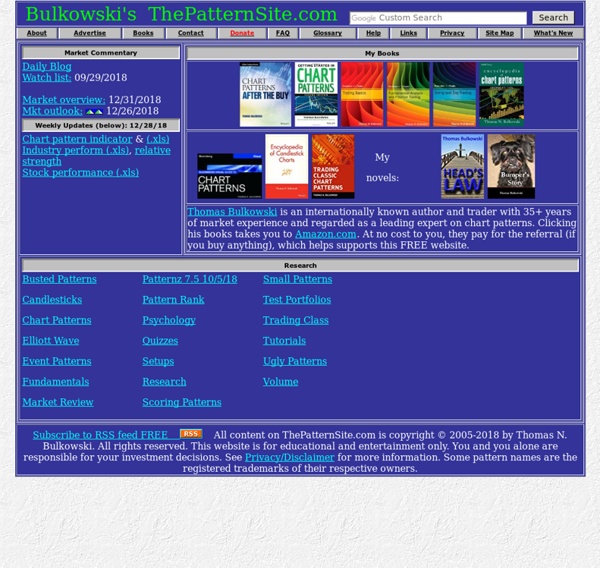



Bulkowski's Trading Types Written and copyright © 2006-2013 by Thomas N. Bulkowski. All rights reserved. What type of trader are you? Trading Types: Scalpers Method: tries to profit from market inefficiencies and small price changes. Trading Types: Day Traders Method: Usually trades a small group of securities each day, closing out most or all positions by day's end. Trading Types: Swing Traders Method: time the market by buying at the swing low and selling at the swing high, or the reverse. Trading Types: Position Traders Method: buy low and sell high or the reverse, not swing trading, but trend following. Trading Types: Investors Method: buy and hold a position. -- Thomas Bulkowski
Market Holidays - 2014 Calendar - Bond & Stock Market Holidays Sources: NYSE EURONEXT and NASDAQ OMX and SIFMA. Narrative of 2014 Market Holidays: The U.S. stock and bond markets are closed on New Year's Day. The stock and bond markets are also closed on MLK day and Washington's birthday (also known as President's Day). The bond market closes early the day before Good Friday, but the stock market is open. The bond market is open the day before the 4th of July, but the stock market closes early. The stock and bond markets close early on Christmas Eve day and are closed on Christmas. For all other holidays not listed here, it should be assumed that the stock and bond markets are open. Stock Market Holidays -- FAQ: Is the stock market closed on Columbus Day? Is the stock market closed on Veterans Day? Is the stock market closed on Election Day? Is the stock market closed the day after Thanksgiving (Black Friday)? Is the stock market closed on Rosh Hashanah? Is the stock market closed on Yom Kippur? Is the stock market closed on Easter Monday?